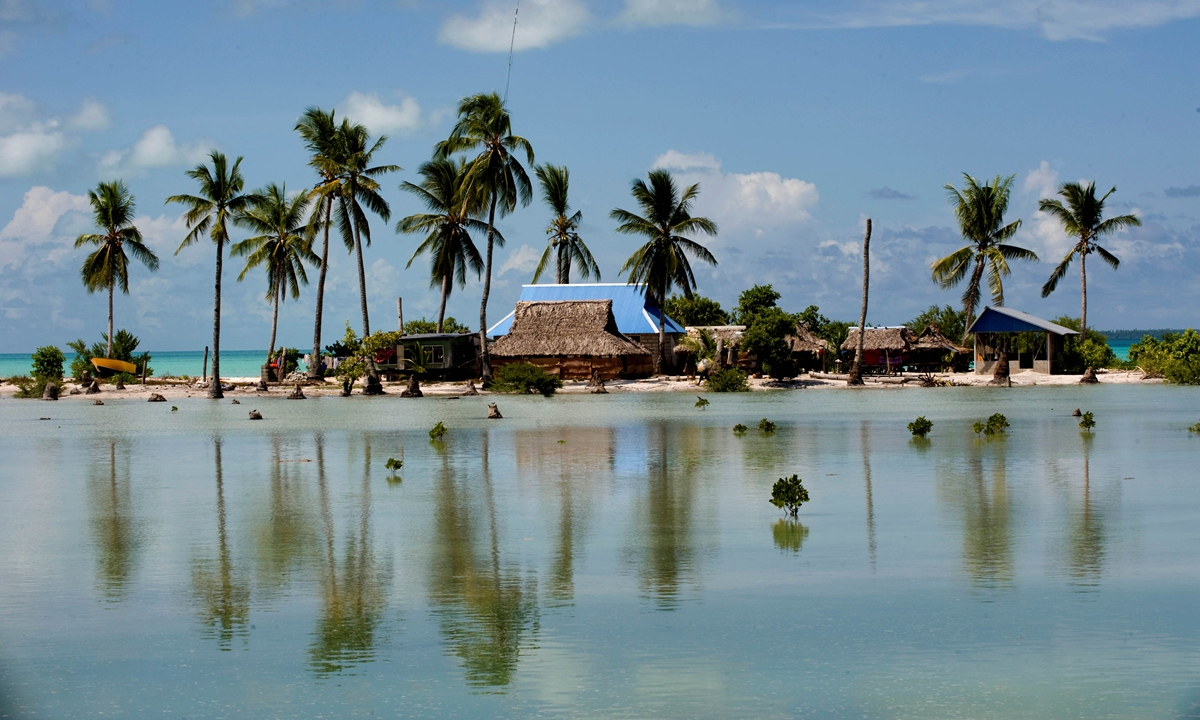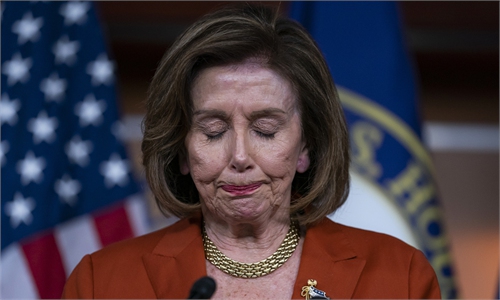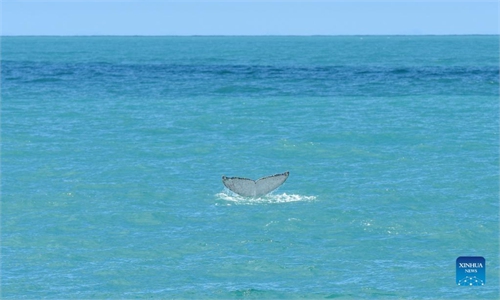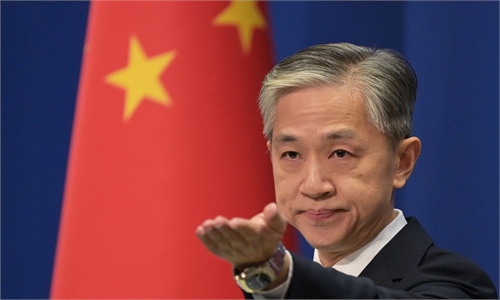
Photo: CFP
As US President Joe Biden is set to host leaders of Pacific island countries at the White House in September, island nations will be watching how seriously his administration takes their calls for help to combat climate change, the South China Morning Post (SCMP) reported on Sunday, citing analysts.
Small island countries are among the most vulnerable to climate change and sea-level rises. The World Health Organization (WHO) said in June that small island developing states, including Pacific islands, make up two-thirds of the countries that suffer the highest relative losses from natural disasters. For instance, rising sea levels are degrading beaches and reefs, and taking the land where homes and hospitals once stood.
Regrettably, the demands from Pacific island countries to tackle climate change have always been ignored in the US, where politicians focus increasingly on zero-sum geopolitical competition and ideological divergences, instead of economic and climate issues. US politicians have pledged sweeping action on tackling climate change but have struggled to deliver.
Let's take the example of the development of solar energy. Power plant developers in the US added less than half of the planned solar photovoltaic capacity in the half first of 2022, Reuters reported recently, citing data from the US Energy Information Administration. Some observers estimated that massive project delays and cancellations may continue throughout 2022, putting US President Joe Biden's climate goals at risk.
The reasons for the delays are complex, including supply chain constraints, labor shortages, and high component prices.
Northwest China's Xinjiang Uygur Autonomous Region is rich in quartz ore, the raw material for industrial silicon, which is a key ingredient in solar panels. The US' crackdown on Xinjiang solar panels has caused a certain degree of chaos throughout the global supply chain and increased component prices. In 2021, the US put five large Chinese polysilicon producers on its Entity List, citing the baseless claim of "forced labor" in the region.
The restrictions have been extended to all polysilicon imports from China's Xinjiang region under the so-called Uyghur Forced Labor Prevention Act (UFLPA), which took effect on June 21. Even if other countries have the capacity to produce polysilicon, higher costs and other problems would appear in the global solar supply chain under the US ban. Obviously Washington prioritized geopolitical competition over the issue of climate change.
The US is not putting required resources in place to shift toward a green economy, but stubbornly sticking to a zero-sum geopolitical game mentality to squeeze its perceived rivals. Through cooperation with the US, Pacific island countries can only get the exact opposite of what they have hoped for.
Rising temperatures are resulting in global and regional precipitation changes, leading to shifts in rainfall patterns and sea-level rise, with a major impact on human health and well-being. Politicians from Pacific island countries have repeatedly stated that geopolitical game is meaningless for those communities that are facing the threat of direct inundation as well as greatly magnified risks from storm surge, tidal flooding and extreme rain.
US influence should not be used only to address the so-called China challenge, but to address the real concerns that Pacific island countries are facing right now, including climate change, natural disasters, and the COVID-19 pandemic.
The author is an editor with the Global Times. bizopinion@globaltimes.com.cn



